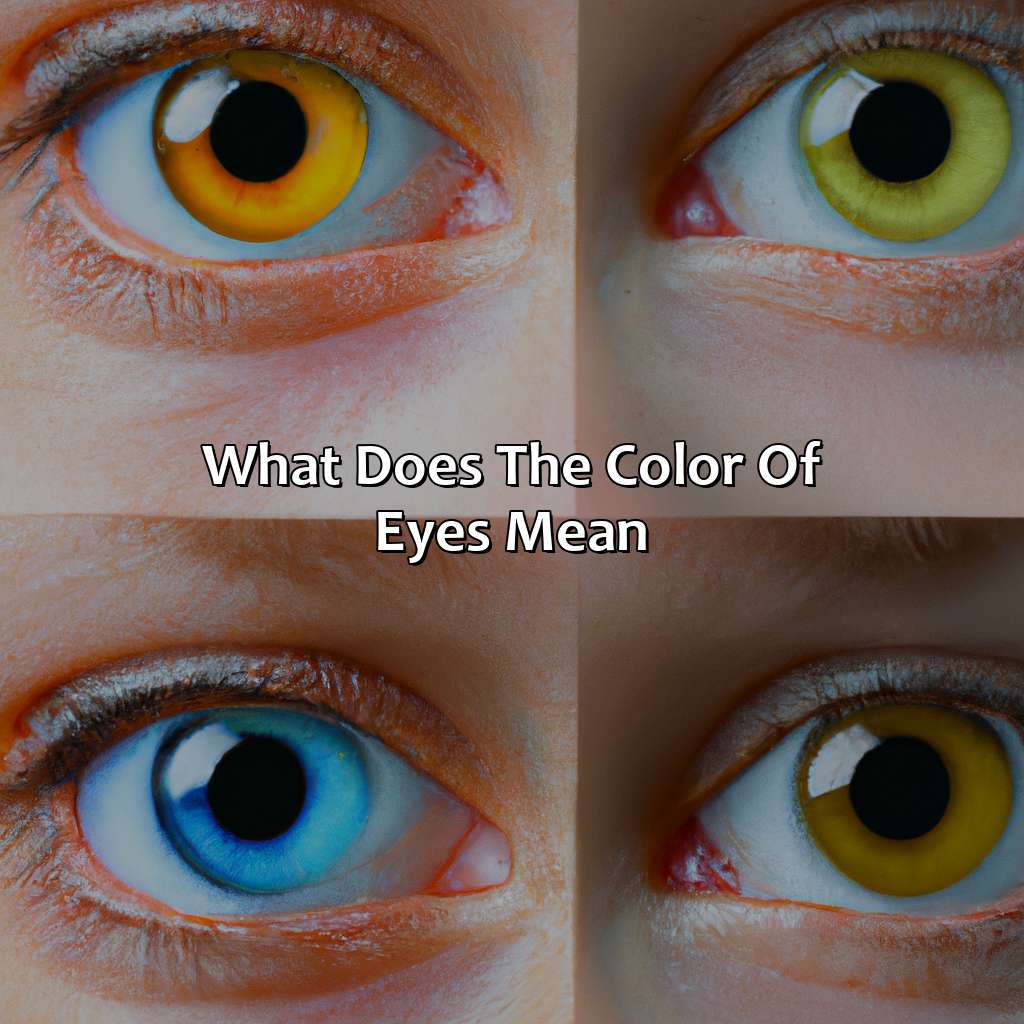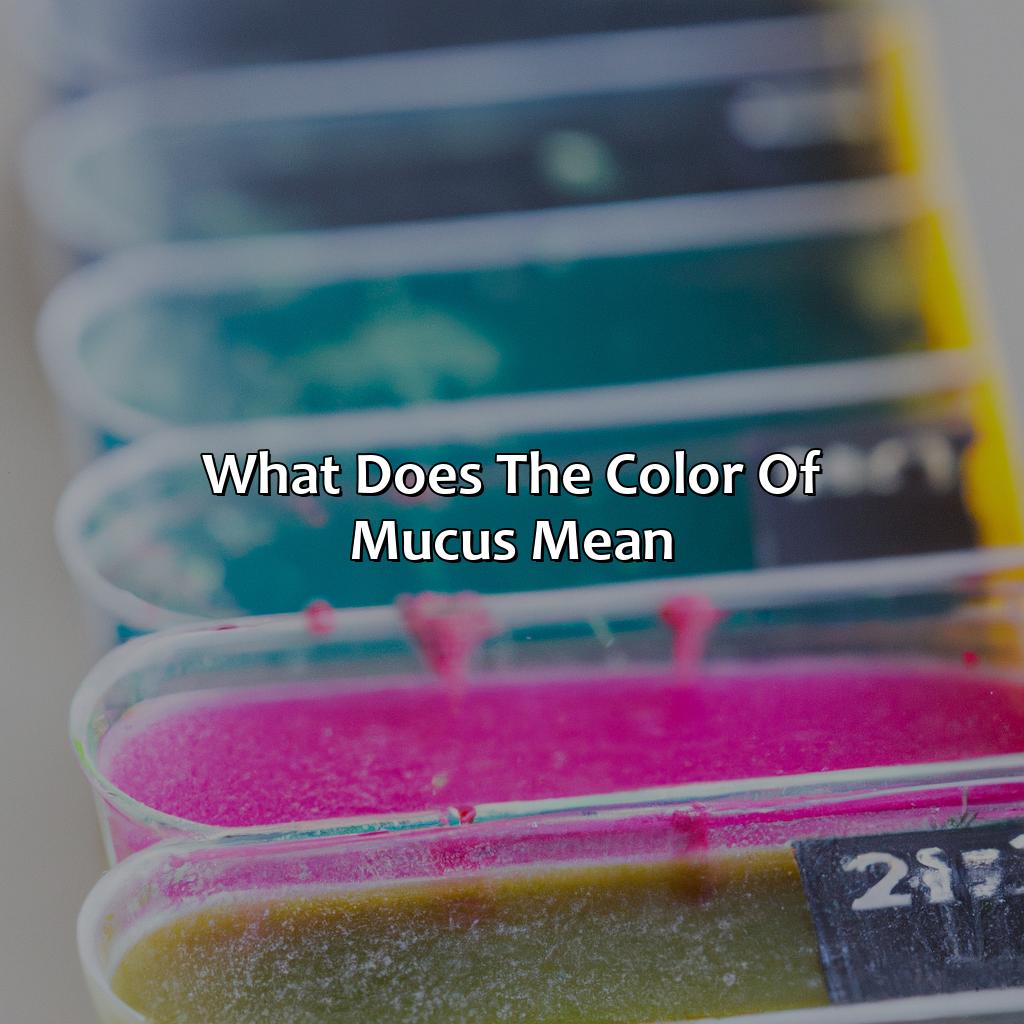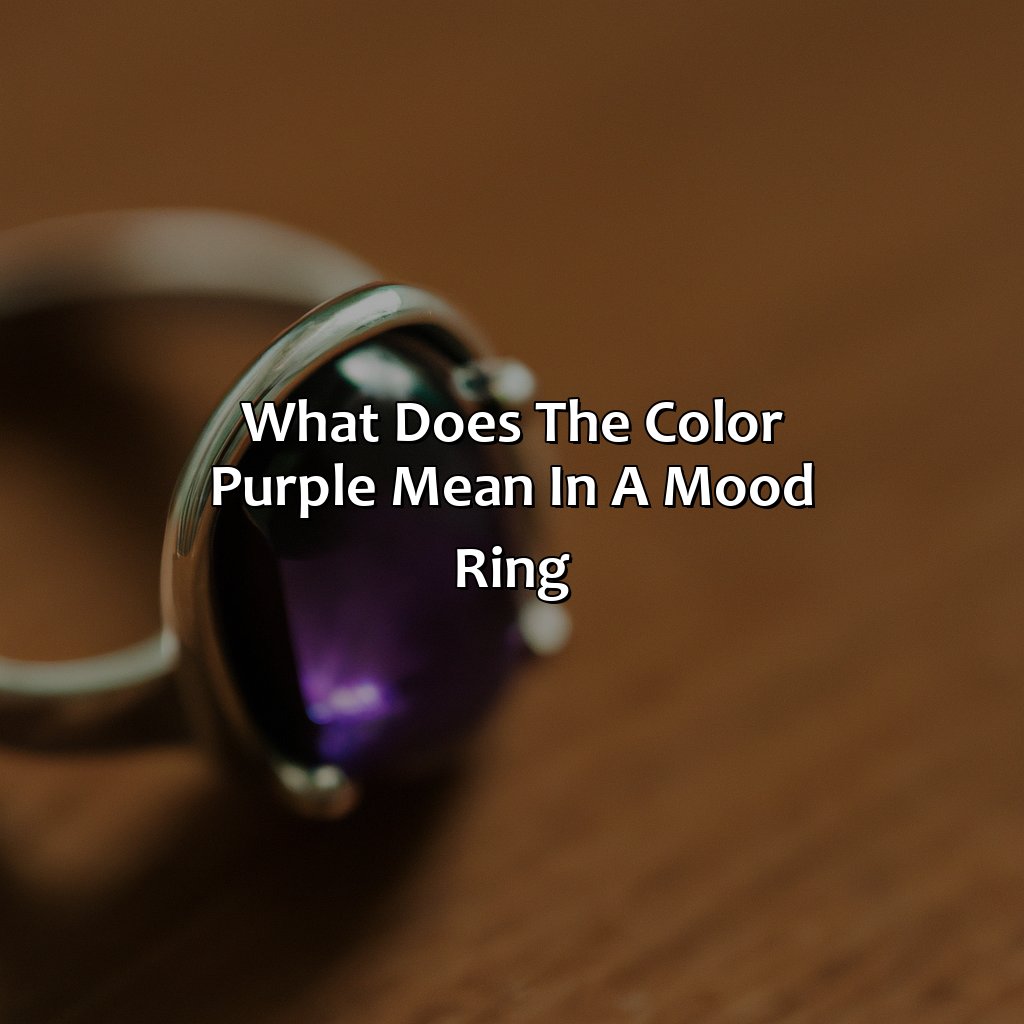Key Takeaway:
- Silver has been used symbolically in the Bible: Silver is often used in biblical references to represent purification, redemption, wealth, and status.
- Biblical references to silver are plentiful: Many passages in both the Old and New Testaments mention silver, including its use for currency and adornment.
- Silver plays a significant role in worship: Silver was used in the construction of the tabernacle and temple, and it continues to have a place in modern Christian worship as a symbol of purity, redemption, and wealth.
The Significance of Colors in the Bible
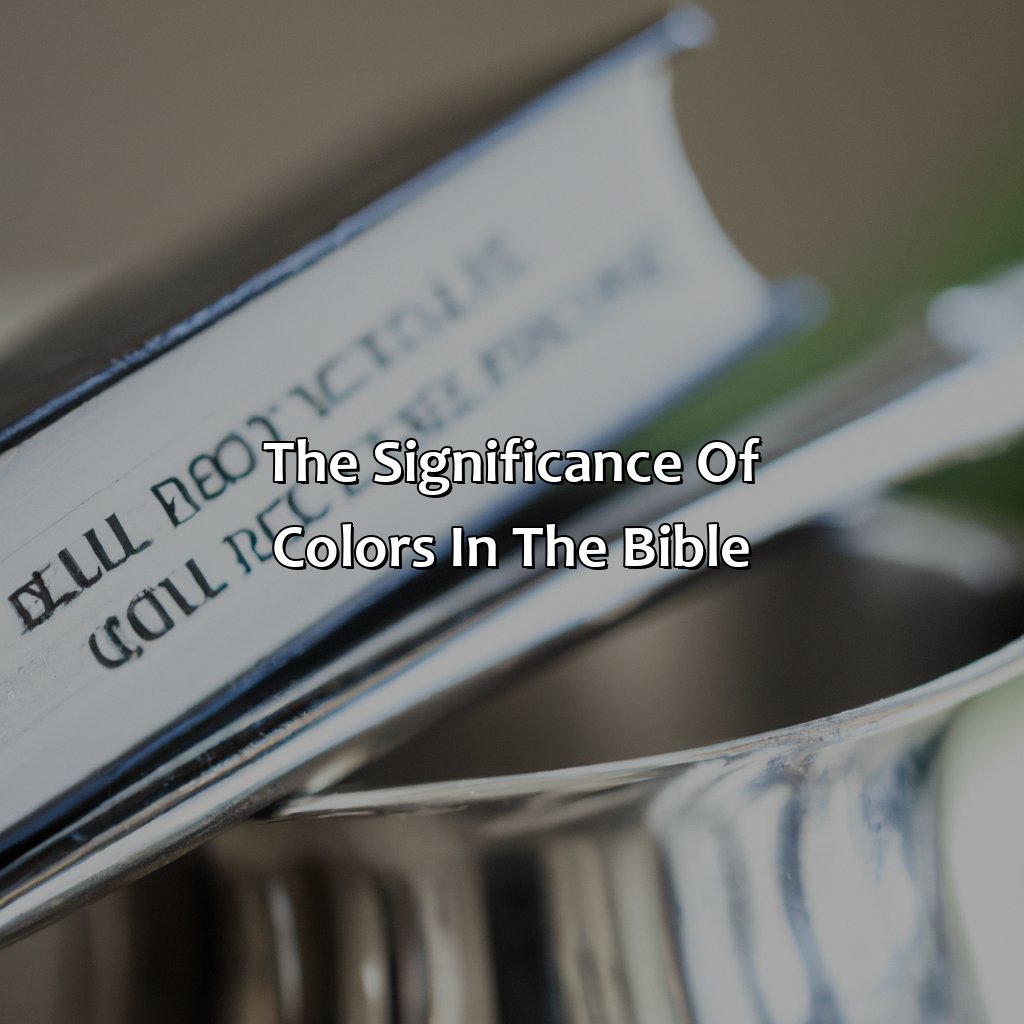
Photo Credits: colorscombo.com by Brian Lopez
The biblical references to colors hold significant meaning and symbolism. The meaning of colors in the Bible carries strong biblical associations with colors. These references reflect deeper spiritual meaning and are commonly used as an illustration or a symbol that represents a particular concept.
Color symbolism in the Bible is fascinating as different colors signify different meanings. For example, red represents sacrifice, sin, and atonement. While blue symbolizes heavenly grace, authority, and eternity. Green represents growth, prosperity, and new beginnings. Yellow stands for light, wisdom, and the glory of God. Black indicates death, mourning, and sin. White represents purity, innocence, and divinity.
Although various colors in the Bible hold different meanings, the color silver has a specific symbolism. Silver represents redemption and salvation. It is the color associated with the ransom of a life (Numbers 18:16), which symbolizes the offering of Jesus Christ, who was betrayed with a silver coin. The process of purifying silver involves removing all impurities and casting it several times. It signifies the purity that comes through the trials and temptations that a believer may have to face in life.
In relation to the meaning of colors in the Bible, silver holds a unique significance. The story of Judas Iscariot’s betrayal by the use of thirty pieces of silver symbolizes the ultimate sacrifice that Jesus made for the redemption of mankind. The silver coins used in his betrayal denote the price paid for our salvation.
Regarding biblical associations with colors, it is remarkable how colors continue to hold significance in religious practices and beliefs. The rich symbolism of colors in the Bible reflects deeper spiritual meanings that reveal God’s divine plan for humanity. As believers, it is essential to understand these colors’ symbolic meanings to relate to biblical concepts fully.
Silver in the Bible

Photo Credits: colorscombo.com by Joe Perez
Understand the importance of silver in biblical times by exploring the Bible’s references and metaphors for silver. This section has two subsections:
- “Definition and Characteristics of Silver” which explains its properties and biblical links.
- “Biblical References to Silver” which explores passages in the Old and New Testaments that mention silver.
Definition and Characteristics of Silver
Silver is a precious metal and chemical element that has been associated with varied uses and symbolism throughout history. The properties of silver comprise malleability, ductility, high electrical and thermal conductivity, and reflectivity. Silver has been utilized in trade and commerce, jewelry, tableware, medicine, photography, electronics, among others. Biblical associations with silver are also numerous.
In the Bible, silver is mentioned a total of 329 times in different contexts. One notable reference is Num 3:47-50 where it is used as ransom money or atonement for the Levites’ lives instead of the firstborn males of Israelites and their cattle. Moreover, the betrayal of Jesus by Judas Iscariot was paid for with thirty pieces of silver (Matt 26:15).
The spiritual significance of silver in the Bible ranges from purity and redemption to wealth and status. In Psalm 12:6-7;13:5-6;66:10-11;Ezekiel 22:18-22; Zechariah 13:9; Malachi 3:3 silver is assigned as a symbol of cleansing and refinement. The value placed on silver in ancient times gives it symbolic value in showing wealth or status (1 Kings 10:21) while its reflective properties demonstrated God’s image (Gen 1:26-27).
The use of Silver in Temple construction was also significant as seen in Exodus 26 –27 that discusses the use of silver hooks to connect Tabernacle curtains together while Exodus 30 outlines other offerings made using Silver like shekels for ransom money or half-shekels needed for annual census fee paying between twenty to sixty years old men.
Pro Tip: It can be helpful to remember that when interpreting symbolism in any religious text ideas have changed over time alongside general changes such socioeconomic practices which may affect biblical interpretations today regarding symbols like Silver’s use in today’s modern Christianity.
Silver may have been a valuable currency in biblical times, but its real worth was in the wisdom and redemption it symbolized throughout the scriptures.
Biblical References to Silver
Silver has been mentioned several times in the Bible, both in the Old and New Testament. The precious metal was used for various purposes ranging from buying land and other commodities to crafting religious artifacts. Some of the biblical passages that mention silver include Genesis 13:2, 1 Kings 10:21, and Exodus 35:22.
| Reference | Biblical Passage |
| 1. | Genesis 13:2 |
| 2. | 1 Kings 10:21 |
| 3. | Exodus 35:22 |
It is important to point out that these are not the only references to silver in the Bible. Many other verses mention this precious metal, highlighting its significance in biblical times.
Silver was considered a pure metal, free from impurities, thus symbolizing redemption and purification when used during specific rituals. Its value also made it a symbol of wealth and status for those who owned it. Moreover, silver was used as a material for creating many items in the Tabernacle and Temple such as vessels and trumpets.
While contemporary Christians may not place emphasis on physical materials anymore; symbolism can still be found in objects created with modern metals signifying their importance in personal reflection practices.
Silver in the Bible is more than just a precious metal – it symbolizes purity, redemption, wealth, and refinement, all rolled into one shiny package.
Symbolism of Silver in the Bible
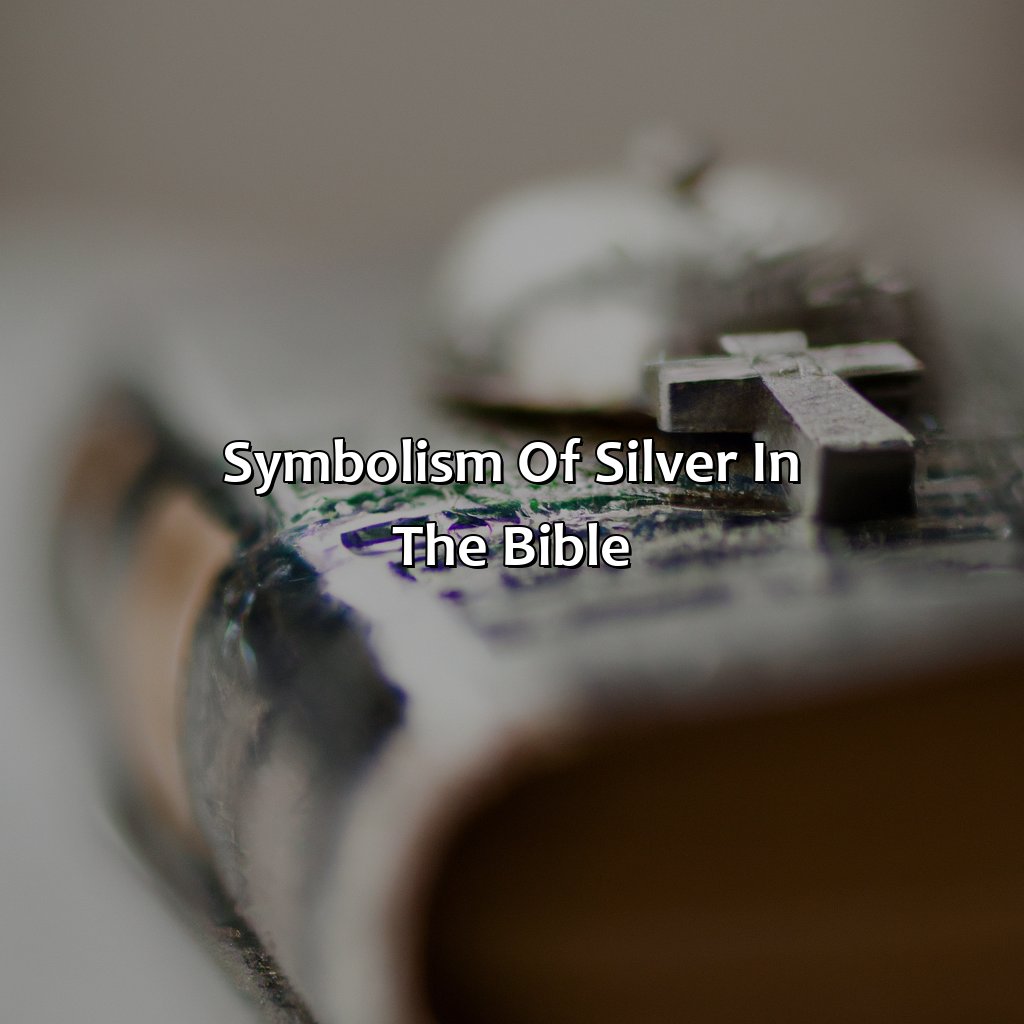
Photo Credits: colorscombo.com by Richard Taylor
Uncover the symbolism of silver in the Bible! Delve into sections that show the importance of this precious metal in spiritual contexts. Realise how silver stands for purity and redemption, with mentions of its symbolism scattered throughout the Bible.
Furthermore, investigate how it is associated with wealth and status – it was a currency in olden days! Lastly, consider the metaphorical use of silver for refining and testing – there are clear Biblical references for this.
Purity and Redemption
Silver as a symbol of purity is an important motif in the biblical narrative. The characteristics of silver, such as its reflective nature and malleability, represent the divine purity and holiness of God. Its value is seen as comparable to that of righteousness and wisdom.
Biblical associations with redemption and silver are also pivotal components of this symbolism. The precious metal was used for the payment of fines and restitution for wrongful actions. This act represented the exchange of impure conduct for pure righteousness through redemption.
Furthermore, silver was deemed an essential component in various ceremonial practices that aimed to cleanse individuals or objects by removing impurities from them. Examples include lining vessels with silver to purify water or use in the refining process of gold.
It’s worth noting that these themes hold significant meaning beyond just their literal interpretation within Christian ideology. Instead, they serve as vital metaphors for personal growth and transformation- urging us to strive with all our might towards greater purity in spirit and action.
In history, certain countries have had entire societies built around mining silver; these prized treasures often designated royalty or powerful families. Through time, however, many historical events exposed how greed led many social structures into corruption-inadvertently scarring what was once praised for its purity.
Silver in the Bible may be worth more than gold, but don’t switch to a silver standard just yet.
Wealth and Status
Silver as a symbol of wealth and status is prominent in the Bible with many biblical references to silver as currency. Its monetary value allowed people to accumulate wealth and demonstrate their social status. Silver was also used by the Israelites to fashion household goods and adornments that further enhanced their prestige.
The symbolism of silver extends beyond just conveying wealth and status. It represents a material possession of high value that requires much care to maintain its lustrous quality. This idea ties into the biblical notion of how maintaining one’s moral purity is like refining silver through fire, which is an arduous but necessary process.
Notably, Proverbs 25:11 emphasizes the importance of using words that are valuable akin to the rare metal, suggesting that possessing precious commodities equates with having wisdom. Therefore, building up one’s tangible possessions and reputation carries significant spiritual implications.
As Christians today, we can reflect on how our attitudes towards wealth and material possessions align with biblical teaching while acknowledging our ability to project our status onto others substantively.
Don’t miss out on exploring this rich aspect of biblical literacy that colors religious culture worldwide.
Silver may shine bright, but it’s through refining and testing that its true worth is revealed – much like our own faith.
Refining and Testing
Silver as a Metaphor for Refining and Testing in the Bible is represented in its biblical references to refining silver. The process of refining silver is a symbolic representation of spiritual purification. The removal of impurities from silver, through intense heat or chemical processes, represents the process of purifying one’s soul and being tested by God.
The book of Proverbs describes this process in chapter 17, verse three, stating “The crucible is for refining silver, and the furnace is for gold, but the Lord tests the heart.” This metaphor continues in Malachi chapter three, verses two and three where God proclaims that he will sit as a refiner and purifier of silver, taking away impurities and leaving only pure metal.
This symbolism can be observed throughout Christian scripture. It indicates that hardships can be used by God to test individuals’ faithfulness. Christians believe that those who go through testing emerge stronger and more faithful than ever before.
Pro Tip: Understanding the symbolism behind the use of silver in refining has been valuable to Christians seeking spiritual renewal through trials and tribulations. Biblical references to refining are reminders that withstood hardship leads to spiritual development and betterment.
Silver not only adorned the holy tabernacle and Temple, but also represented the value and purity of sacrifices offered to God.
The Use of Silver in the Tabernacle and Temple
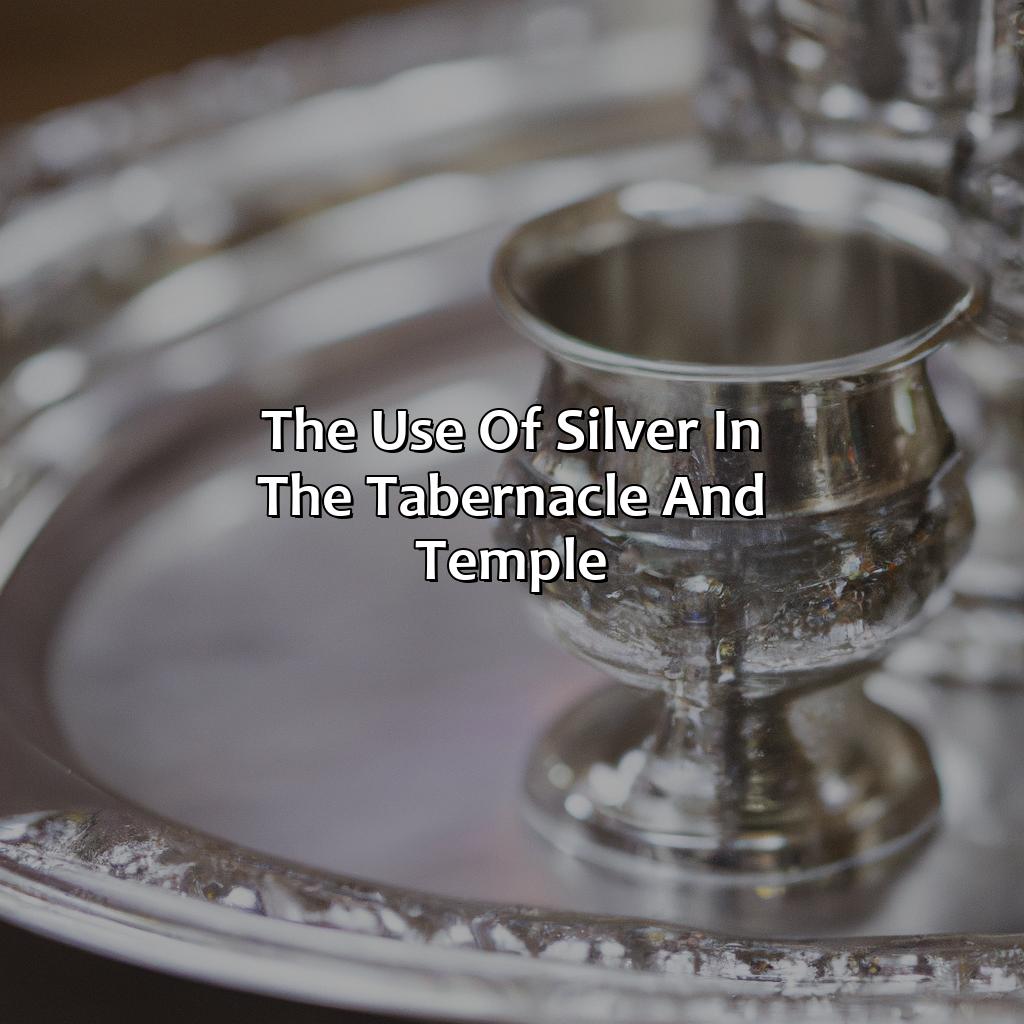
Photo Credits: colorscombo.com by Stephen Perez
What is the biblical meaning of silver? To find out, this article looks at how it was used in the Tabernacle and Temple. Silver was used in the design and building. It was also a valuable offering and symbol of purity.
In ‘Construction and Design’, we look at silver’s place in the physical layout of these holy sites. ‘Significance in Worship’ explores how silver was linked to worship in the Bible.
Construction and Design
The use of silver in the construction of the tabernacle and temple was extensive. The precious metal was incorporated into various elements, including the utensils, vessels, and decorative items. The silver also played a crucial role in the design of the furniture and fixtures, showcasing exceptional craftsmanship.
In particular, the Ark of the Covenant, which symbolized God’s presence among His people, was made of acacia wood overlaid with pure gold on both sides. Two massive cherubim were hammered out of beaten silver and placed on top to cover its mercy seat.
Likewise, each pillar in the court surrounding the tabernacle was topped with a capital cast from silver that featured intricate engravings. Hiram, King Solomon’s craftsman who supervised the building of the first temple in Jerusalem, also used silver in many elaborate designs for various vessels like bowls, ladles, censers for burning incense, and candlesticks.
The elaborate use of silver substantiated luxuriousness while at once reflecting God’s glory in an extravagant display worthy of worship. Silver in the Bible isn’t just for buying fancy vessels, it also plays a significant role in worship and spiritual purification.
Significance in Worship
Silver has significant biblical associations with its use in worship. The use of silver in worship was prevalent in ancient times as it represented purity and redemption. In modern times, the symbolism of silver is still relevant in worship practices.
The use of silver in worship signifies purity and redemption, as it is a precious metal that can be refined to remove impurities, just as a believer must purify themselves to approach God. The use of silver also represents redemption, as it was often used to pay ransoms or for sacrifices.
In addition to its symbolic significance, the use of silver in worship also held practical purposes. It was used to craft vessels and utensils for temple services such as cups, spoons, and bowls.
A unique detail about the significance of silver in worship is that it was not only used for tangible objects but also for monetary transactions. Silver was used as currency at various times throughout history.
A true history about the significance of silver in worship involves King Solomon’s temple. The temple featured a grand hall called “The Holy Place” where various utensils and furniture were crafted from pure gold and covered with gold plating. However, the temple also utilized many vessels made from pure silver that were both beautiful and functional.
Overall, the use of silver in worship holds a significant place within biblical teachings and practices. Its symbolism continues to hold relevance today within modern Christianity. For those seeking a little bling in their spiritual journey, silver symbolism has practical applications in daily life and offers insightful opportunities for personal reflection.
The Application of Silver Symbolism in Modern Christianity
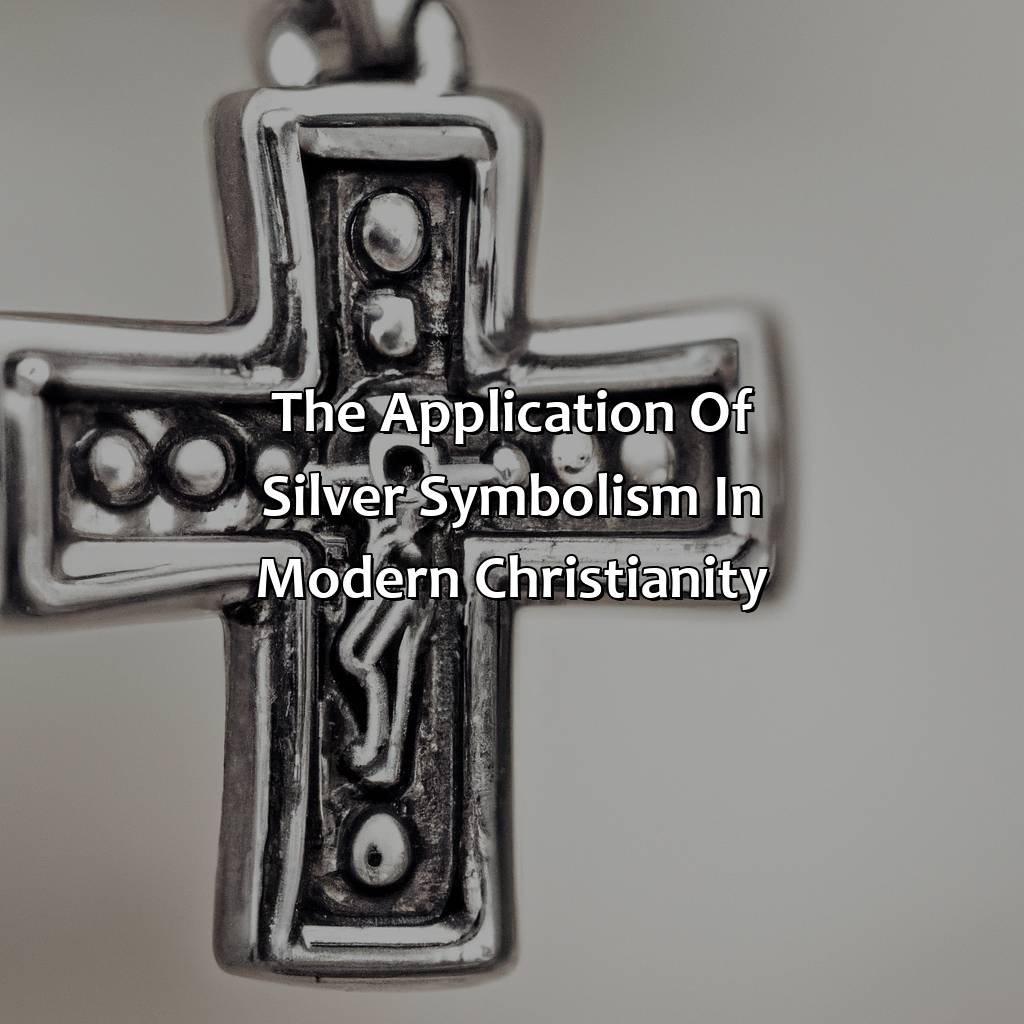
Photo Credits: colorscombo.com by Peter Garcia
This section examines modern Christian use of silver symbolism. It explores two applications: Practical Applications and Personal Reflection. Practical Applications provide ideas for how to use silver symbolism in a modern-day Christian context. Personal Reflection delves into the significance of silver in one’s faith.
Practical Applications
To apply the symbolism of silver in modern Christian practice, one may use it to reflect purity, wealth, and refinement. This can be done through various practices such as sacramental offerings or engaging with liturgies that represent silver’s significance.
| Practical Applications | Examples |
|---|---|
| Attire for Liturgical Celebrations | Wearing silver clothing during special church services can signal one’s respect and reverence. |
| Decorations and Adornments | Silver-based items used in church altars, iconography, rosaries, and other religious objects are believed to symbolize spiritual purity. |
| Charitable Donations | Supporting organizations that aim to promote sanctity and aid underprivileged individuals exemplifies the metaphorical values of silver. |
One significant detail to note is how these practices can enhance personal spirituality while also supporting a broader society by donating or serving those in need.
A personal story exemplifying this is how a youth group recently organized a fund-raising event aimed at helping the underprivileged in their community by selling replicas of the Tabernacle made from pure silver. They raised awareness of religious symbolism and, at the same time, worked towards promoting social responsibility by donating all the proceeds to help those who struggle with poverty.
Reflecting on the symbolism of silver in the Bible reminds me that even in my imperfections, I am being refined and tested for a greater purpose.
Personal Reflection
Reflecting on the Significance of Silver in One’s Faith prompts one to consider how silver connects to their beliefs. The Biblical symbolism of silver as a precious metal imbued with purity, redemption, wealth, and refining inspires Christians to reflect on their own journey towards remaining pure and seeking redemption. This reflection also involves contemplating how wealth and status can be used for God’s glory, as well as recognizing the refining process necessary to grow closer to Him.
Considering the parallels between silver’s symbolic meanings in the Bible while reflecting on oneself encourages believers to apply these concepts in modern Christianity. Such applications can include investing earned wealth in charitable causes, enriching one’s own spiritual growth through personal reflection and prayer, as well as pursuing opportunities for service in the church community.
Moreover, Personal Reflections on the Significance of Silver in One’s Faith opens up opportunities for individuals to share personal stories about how they have embodied silver’s symbolism in their lives. For example, someone might recall an experience where they felt fervently purified by the Holy Spirit or received unexpected blessings that affirmed their status as a child of God.
Overall, reflecting honestly on how silver relates to one’s faith can lead to profound internal growth and situational awareness. It can also foster community outreach and bring tributes to God Almighty who provides everything needed for life.
Final Thoughts on the Meaning of Silver in the Bible

Photo Credits: colorscombo.com by Jeffrey Jones
Silver holds significant symbolism and meaning in the Bible. It represents wealth, purity, and redemption. The biblical meaning of silver in dreams and visions also relates to prosperity and blessings. Additionally, the Bible describes the use of silver in agriculture, specifically for irrigation. Many biblical stories use silver as a significant element, such as the story of Judas’ betrayal of Jesus for thirty pieces of silver.
It is clear that silver holds great value and importance in the Bible, not just in terms of material wealth but also in spiritual connotations. One fascinating fact about the use of silver in the Bible is that it played a significant role in the construction of the Tabernacle, as described in the Book of Exodus.
Five Facts About the Color Silver in the Bible:
- ✅ The color silver is often associated with wisdom, purity, and redemption in the Bible. (Source: Bible Study Tools)
- ✅ The use of silver as currency in biblical times signifies the value and importance placed on the material. (Source: Bible Gateway)
- ✅ In the book of Zechariah, silver is mentioned as a metaphor for refining and purifying individuals. (Source: Biblehub)
- ✅ In the book of Revelation, silver is used as a symbol for the righteousness of the saints and their shining glory. (Source: Bible Study Tools)
- ✅ The tabernacle and temple in the Bible were adorned with silver, representing the sacredness and holiness of the structures. (Source: Bible Gateway)
FAQs about What Does The Color Silver Mean In The Bible
What does the color silver mean in the Bible?
The color silver holds significant symbolism in the Bible. It is often associated with wealth, prosperity, and refinement. In the Old Testament, silver was the standard of money and was used to measure worth. Spiritually, silver represents redemption, refinement, and salvation.
Does silver symbolize purity?
Yes, silver is often associated with purity in the Bible. The process of refining silver involves removing impurities and bringing it to a state of purity. This process is compared to God purifying his people and refining them to be holy.
What biblical stories involve the color silver?
The Bible contains several stories involving silver. For example, Judas Iscariot betrayed Jesus for thirty pieces of silver. Additionally, the book of Exodus describes how the Israelites used silver to make offerings for the Tabernacle.
What does it mean when silver is used in biblical prophecy?
When silver is used in biblical prophecy, it often represents a time of upheaval, instability, and refining. In the book of Daniel, silver is used to symbolize the second kingdom, which would be inferior to the previous kingdom but still hold power.
Is there a specific biblical representation of the color silver?
In the Bible, there is no specific character who is represented by the color silver. However, many biblical stories involve silver as a symbol of wealth, purity, and redemption.
What lessons can we learn from the symbolism of silver in the Bible?
From the symbolism of silver in the Bible, we can learn to value purity, refinement, and salvation. Silver can remind us that God is constantly refining us through trials and struggles, and that we should strive towards holiness and righteousness.

